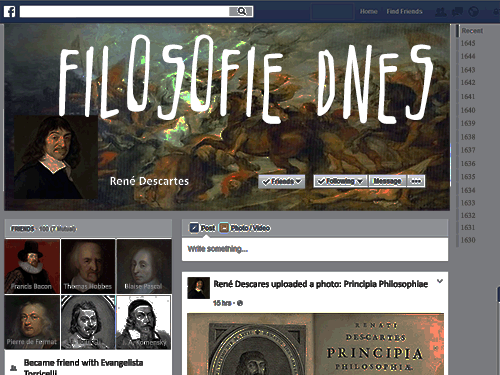Vyřešil Hans Albert problémy Popperova kritického racionalismu?
DOI:
https://doi.org/10.26806/fd.v7i2.218Keywords:
Karl Popper, Hans Albert, kritický racionalismusAbstract
Kritický racionalismus je v české akademické diskusi spojován především se jménem sira Karla R. Poppera. Cílem tohoto článku je komparativně rozšířit tento obraz prostřednictvím myšlenek Hanse Alberta, Popperova následovníka v německé jazykové oblasti. Konkrétně bude diskutována problematika rozlišení kontextu objevu a kontextu zdůvodnění. Na základě vybraných problémů, s nimiž se Popper nedokázal zcela vypořádat, bude ukázáno, jak tyto problémy do své koncepce involvuje a jak je řeší Albert. Zajímavý na tomto srovnání je především fakt, že Albert pojímá původně filosoficko-vědní problémy v širším filosofickém rámci. Díky tomu se mu podařilo uchopit kritický racionalismus – jak sám Popper uznal – s odstupem a v nových souvislostech.
In the Czech academic environment, the critical rationalism is associated above all with the name of Sir Karl R. Popper. The aim of this paper is to comparatively extend this view via thoughts of Popper’s German follower Hans Albert. Specifically, the issue of the distinction between context of discovery and context of justification will be discussed here. Against the background of selected problems, which Popper did not adequately solve, I will demonstrate how Albert involves these problems in his own conception and how he solves them. The interesting fact about this comparison is that Albert approaches the originally philosophical-scientific problems in a wider philosophical context. Thanks to this wider context he grasps the critical rationalism from a distance and in new connections, as Popper accepted himself.
Downloads
Published
Issue
Section
License
Authors who publish in this journal agree that:
1. Authors retain copyright and guarantee the journal the right of first publishing. All published articles are licensed under the Creative Commons Attribution license, which allows others to share this work under condition that its author and first publishing in this journal was acknowledged.
2. Authors may enter into other agreements for non-exclusive dissemination of work in the version in which it was published in the journal (for example, publishing it in a book), but they have to acknowledge its first publication in this journal.
3. Authors are allowed and encouraged to make their work available online (for example, on their websites) as such a practice may lead to productive exchanges of views as well as earlier and higher citations of published work (See The effect of open access).


